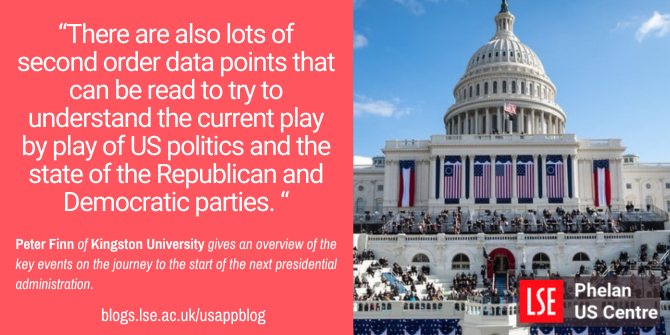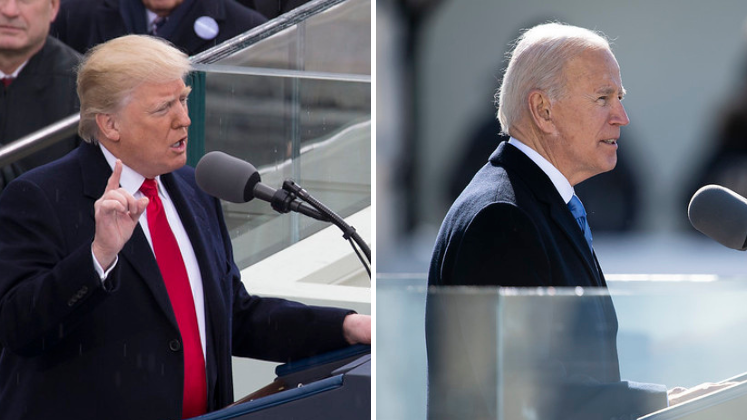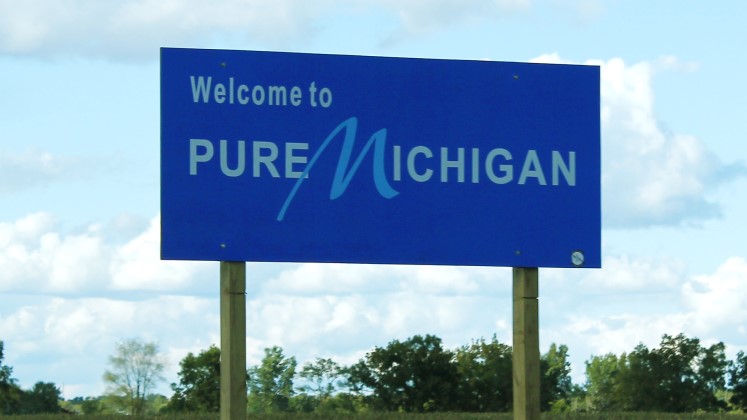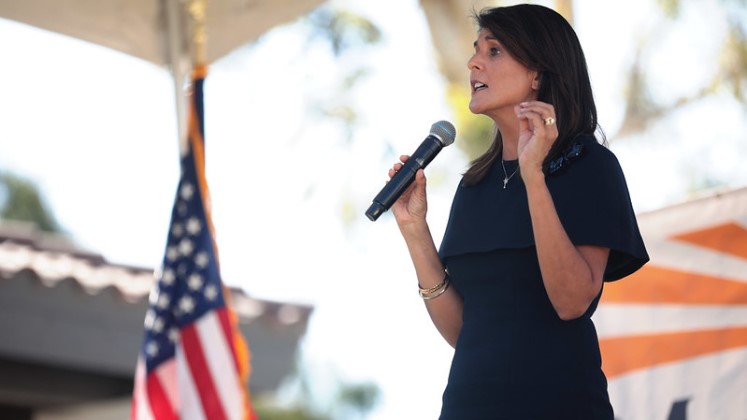 With Inauguration Day 2025 less than a year away, Peter Finn gives an overview of the key events on the journey to the start of the next presidential administration.
With Inauguration Day 2025 less than a year away, Peter Finn gives an overview of the key events on the journey to the start of the next presidential administration.
- This article is part of ‘The 2024 Elections’ series curated by Peter Finn (Kingston University). Ahead of the 2024 election, this series is exploring US elections at the state and national level. If you are interested in contributing to the series, contact Peter Finn (finn@kingston.ac.uk).
Bar a dramatic change from within either the Democratic or Republican parties, the two most likely outcomes on Monday, January 20th, 2025 – Inauguration Day – are a second Joe Biden administration, or a second Donald Trump administration. The period between now and inauguration day 2025 has key markers and dates that could influence which one of these outcomes occurs. Below, I highlight some of these within the 2024 US electoral cycle:
Table 1 – Key Dates through to Inauguration Day 2025
| Date | Event |
|---|---|
| Through June 8 2024 | Primaries |
| July and August | Party conventions |
| September and October | Planned presidential candidate and Vice-Presidential candidate debates |
| Ongoing | Trump's legal cases |
| November 1, 2024 | Presidential election |
| January 20, 2025 | Inauguration Day |
Primaries – until June
The primaries will formally end on June 4 for the Republican Party and June 8 for the Democratic Party. Yet bar an unexpected event, and especially after this week’s Super Tuesday results, there is little doubt that Trump and Biden will be the nominees for the Republican Party and the Democratic Party respectively. As such, though at a presidential level, the primaries are essentially a done deal, there are still thousands of other offices for which primaries will occur. Meaning there is still plenty to be decided down-ballot.
There are also lots of second order data points that can be read to try to understand the current play by play of US politics and the state of the Republican and Democratic parties. One example includes the recent campaign to get primary voters in Michigan to register as uncommitted in protest at the Biden administration’s policy towards Israel’s Gaza campaign. Likewise, the performance of Nikki Haley in different states (despite her withdrawal from the nomination race) can be mined for clues about the levels of discontent among Republican voters about Trump. Whilst one should be cautious using such data points to make any predictions about the presidential election, they can be useful in and of themselves.
Party conventions – July and August
Big cultural markers in the US political system, nomination conventions have provided some of the most memorable images of presidential campaigns. Think Trump’s face looking down from an enormous screen in Cleveland, Ohio, and Hillary Clinton accepting the Democratic nomination in Philadelphia, Pennsylvania, both in 2016, and Barack Obama formally becoming the Democratic Nominee in Denver, Colorado, in 2008.

“P20210120CK-1111” by The White House is United States government work.
As shown in Table 2, this year the Republican Party, following in the foot-steps of the Democrats in 2020, are holding their convention in Milwaukee, Wisconsin (though the Democrats were forced largely to move online due to the COVID-19 pandemic in 2020). The Democrats, meanwhile, are holding their convention a month later in Chicago, in a move one presumes it is hoped will tap into the positive feelings linked to Obama’s ties to the city and his 2008 speech after winning the presidential election.
Table 2 – Republican and Democratic Party Nominating 2024 Conference
| Date | Event |
|---|---|
| July 15 - 18 | Republican Convention (Milwaukee, Wisconsin) |
| August 19 - 22 | Democratic Convention (Chicago, Illinois) |
Sources: City of Milwaukee & Democratic Party
Debates – September and October
Following the conventions, the next step on the journey to Election Day will be the presidential, and vice presidential, debates. As Table 3 shows, planned between September 16 and October 9 in Texas, Pennsylvania, Virginia, and Utah, in theory these debates should offer Trump and Biden, along with their Vice-Presidential candidates, a chance to make their pitch to the American electorate. In 2020, one of the presidential debates was cancelled after Trump tested positive for COVID-19, while the Vice Presidential debate from that year is mainly remembered because a fly landed on the head of Vice President Mike Pence.
Interestingly, reporting from Time suggests it is possible that some, if not all, of these debates may end up being cancelled, summing up the situation as: ‘a Trump-Biden debate could still happen (though probably won’t)’. Factors such as a perceived bias against the Commission on Presidential Debates, which organises such debates, from the Republican side, and a general aversion within Biden’s team of him engaging in ‘a face-to-face brawl’ with Trump ‘where things could go sideways at any moment’.
Table 3 – Planned 2024 Presidential Candidate and Vice-Presidential Candidate Debates
| Date | Event |
|---|---|
| September 16 | First Presidential Candidate Debate (Texas State University in San Marcos, Texas) |
| September 25 | Vice Presidential Candidate Debate |
| (Lafayette College in Easton, Pennsylvania) | |
| October 1 | Second Presidential Candidate Debate |
| (Virginia State University in Petersburg, Virginia) | |
| October 9 | Third Presidential Candidate Debate (University of Utah in Salt Lake City, Utah) |
Source: Commission on Presidential Debates
Trump’s Legal Cases
If there is one factor that appears likely to throw up surprises between now and inauguration day 2025, it is the many legal cases against Trump. They will require constant attention and appear to be placing Trump into ever increasing legal jeopardy. Whilst one should caution against predicting how any or all these cases may play out or evolve, the sheer volume of them will clearly create logistical problems, at the least, and could have much more serious consequences.
If one was looking to predict where a so-called October Surprise may come from, it seems likely that the ever growing complexity of these cases are good candidates to focus on.
Presidential Election and Inauguration Day – November and January
Occurring on November 5, 2024, and January 20, 2025, respectively, the presidential election and inauguration day will, bar a change of nominee for either party, either represent continuity in the shape of a Biden administration, or a reversion back to the four years prior to Biden’s presidency, when Trump was in the White House.
Yet, given the many attempts by Trump and those around him to nullify Biden’s victory in 2020, and the attack on the US Capitol on January 6, the period between these two dates is loaded with foreboding possibilities. One hopes, however, that the 2024 election cycle is not affected with the tumult that followed the 2020 election.
- Please read our comments policy before commenting.
- Note: This article gives the views of the author, and not the position of USAPP – American Politics and Policy, nor the London School of Economics.
- Shortened URL for this post: https://wp.me/p3I2YF-dEI







You have the years wrong for the Election Day throughout your article. In one table you list November 1, 2005. In another paragraph you state November 5, 2025. The election will be held November 5, 2024.
Thanks for spotting these typos – they’ve now been corrected.
– Chris